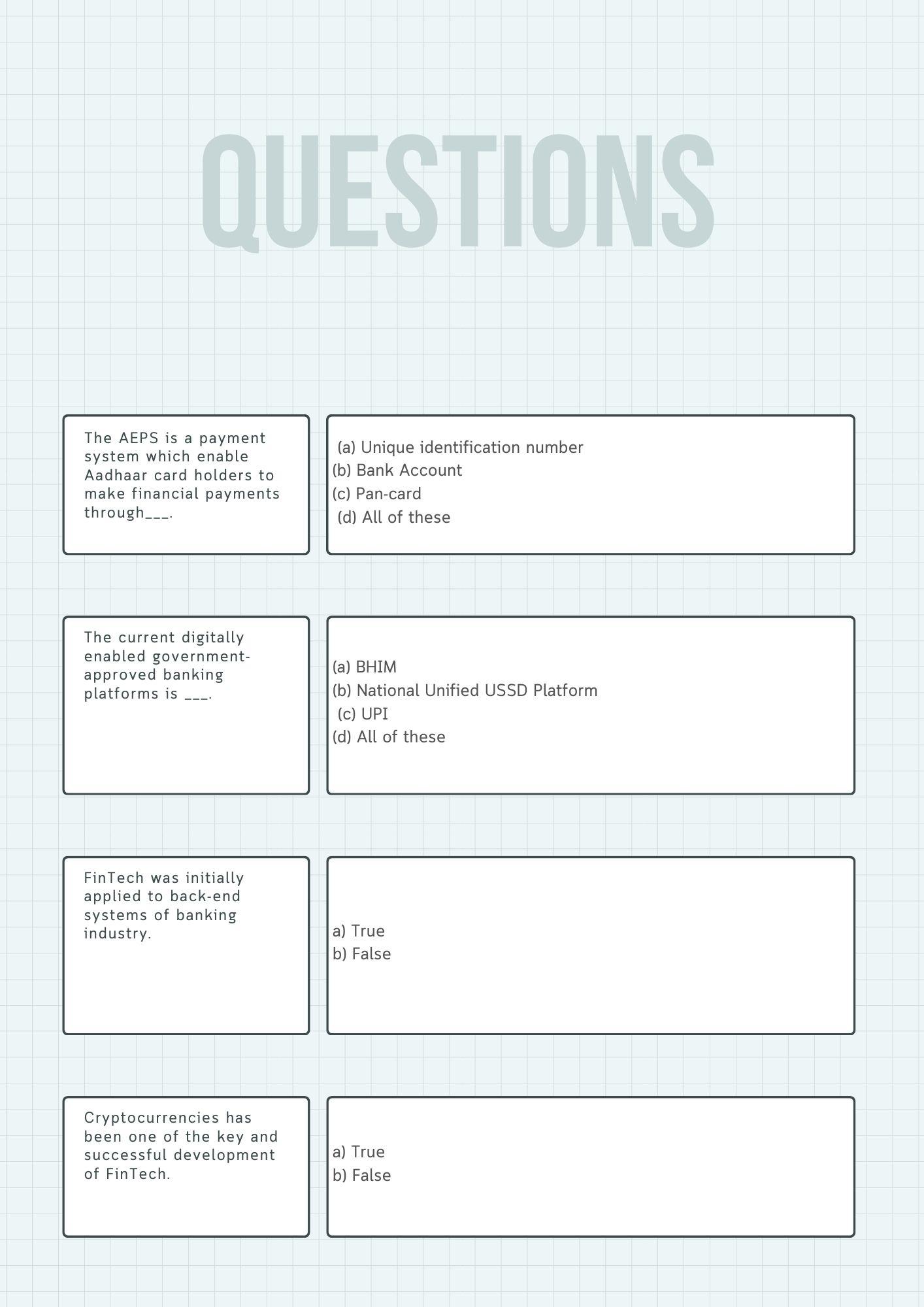Introduction to FinTech & Funds
FinTech, or Financial Technology, has rapidly evolved in the 21st century, transforming the financial services industry. Initially focused on improving the back-end systems of banking, FinTech now encompasses a wide range of consumer-oriented services, fundamentally changing how we interact with money.
Evolution of FinTech
-
Early Focus on Back-End Systems:
- In its early stages, FinTech primarily aimed to enhance the operational efficiency of financial institutions.
- This involved adopting and integrating advanced technologies like algorithms and specialized software into existing systems.
-
Shift to Consumer-Oriented Services:
- FinTech has expanded beyond back-end operations to directly serve consumers across various sectors.
- This includes:
- Retail banking
- Investment management
- Insurance
- Education
- Stock market trading
- Non-profit organizations
Key Developments and Applications
-
Cryptocurrencies:
- The emergence of cryptocurrencies, such as Bitcoin, has been a pivotal development in FinTech.
- These digital currencies offer decentralized and secure transaction methods.
- In India, The Reserve Bank of India (RBI) launched the digital rupee in 2022, and it is in the experimental phase.
-
Digital Transactions:
- The increasing adoption of digital payment methods is paving the way for a cashless society.
- FinTech facilitates seamless and instant money transfers, online loan applications, and mobile check deposits.
-
Investment Management:
- Algorithmic trading and robo-advisors are revolutionizing investment management by providing automated and data-driven solutions.
-
Accessibility and Convenience:
- FinTech applications, accessible through smartphones and computers, have made financial services more accessible and convenient for individuals and businesses.
Current FinTech Activities
FinTech is currently involved in a wide array of financial activities, including:
- Money Transfers: Facilitating fast and secure domestic and international money transfers.
- Online Loan Applications: Streamlining the loan application process, eliminating the need for physical bank visits.
- Investment Management: Providing automated investment advice and trading platforms.
- Mobile Banking: Enabling users to perform banking transactions using their smartphones, such as depositing checks and managing accounts.
- Algorithmic Trading: Utilizing computer algorithms to execute trades in financial markets.
Impact
FinTech has democratized financial services, making them more accessible, efficient, and user-friendly. It continues to drive innovation and reshape the future of finance.


No Comments